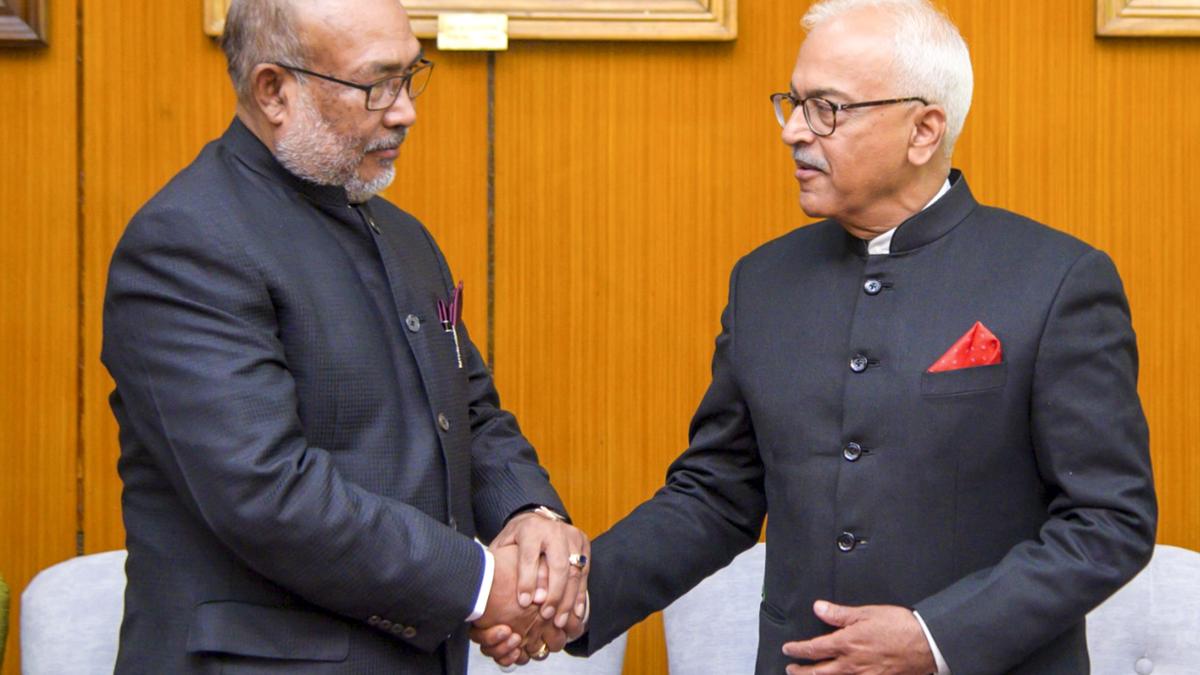 |
|
The recent resignation of Manipur Chief Minister N Biren Singh has sparked considerable political debate, particularly in light of Congress General Secretary Priyanka Gandhi Vadra's assertion that the move was "long overdue." The statement, made on February 10, 2025, underscores the gravity of the situation in Manipur, where ethnic violence has raged for nearly two years, leaving a trail of devastation and suffering in its wake. The scale of the crisis is undeniable: over 250 lives lost and thousands forced from their homes, highlighting a profound failure of governance and a desperate need for effective conflict resolution strategies. Gandhi's pointed criticism directly challenges the incumbent government's handling of the crisis, raising questions about the effectiveness of their response and the adequacy of measures implemented to quell the violence and restore peace to the state. The prolonged conflict has had a devastating impact on the lives of ordinary citizens, shattering communities and disrupting the social fabric of Manipur. The humanitarian consequences are severe, with widespread displacement, loss of livelihoods, and psychological trauma deeply affecting the population. The international community is also watching closely, with concerns mounting over the state's ability to maintain stability and provide basic necessities for its citizens.
The context of Priyanka Gandhi's statement is crucial. As a prominent figure within the Indian National Congress, her comments carry significant political weight and reflect a strategic attempt to highlight the government's shortcomings. By characterizing the resignation as "long overdue," she implicitly accuses the previous administration of inaction and negligence, exacerbating the crisis rather than addressing its root causes. This narrative effectively positions the Congress party as a more effective alternative, capable of bringing peace and stability to the troubled region. The timing of her statement is also noteworthy, coinciding with her visit to Wayanad, her Lok Sabha constituency. While seemingly unrelated, this geographic context adds a layer of political strategy, allowing her to address national concerns while simultaneously engaging with local issues within her own constituency. This multi-faceted approach demonstrates a calculated political manoeuvre to expand her influence and highlight the contrasting approaches between the Congress and the ruling government.
Beyond the immediate political implications, the resignation of N Biren Singh raises fundamental questions about governance, conflict resolution, and the responsibility of political leaders in maintaining peace and security. The two years of sustained violence in Manipur serve as a stark reminder of the immense challenges faced in managing ethnic tensions and preventing the escalation of conflicts into large-scale humanitarian crises. The failure to effectively address the root causes of the violence underscores the need for a comprehensive and multi-faceted approach, encompassing not only security measures but also reconciliation efforts and long-term strategies to address the underlying social and economic disparities that fuel such conflict. Furthermore, the sheer scale of the displacement and loss of life necessitates a significant humanitarian response, involving not only immediate relief efforts but also long-term initiatives to rebuild communities and restore livelihoods. The international community can play a crucial role in supporting these efforts, providing both financial and technical assistance to ensure sustainable peace and stability in Manipur.
The future of Manipur remains uncertain, but the resignation of the Chief Minister presents an opportunity for a renewed commitment to addressing the root causes of the conflict and fostering reconciliation. This requires a shift towards inclusive governance, where all stakeholders are actively involved in shaping the future of the state. The process of healing and rebuilding will be long and arduous, but the collective responsibility of political leaders, civil society organizations, and the international community is paramount in ensuring that the people of Manipur can live in peace and security. The lasting legacy of this conflict will depend on the ability of all actors to learn from the past, address the underlying issues, and implement sustainable solutions that prevent future outbreaks of violence. The call for accountability remains strong, and a thorough investigation into the causes and consequences of the conflict is essential to prevent similar tragedies in the future. The events in Manipur serve as a cautionary tale, highlighting the critical importance of effective conflict resolution, inclusive governance, and proactive measures to prevent ethnic violence from escalating into protracted and devastating humanitarian crises.
Finally, it is important to note the wider implications of this situation for India's national security and its commitment to upholding the rule of law. The sustained violence in Manipur raises questions about the effectiveness of the national government's response and its ability to maintain stability within its own borders. The international community will continue to closely monitor the situation, and any failure to address the underlying issues effectively could have far-reaching consequences for India's regional and international standing. The path towards peace and stability in Manipur requires a holistic approach, encompassing political reforms, economic development, and social reconciliation, all of which are crucial to ensuring long-term peace and security for the people of the state. The challenges are significant, but the potential for positive change remains, requiring a concerted effort from all stakeholders involved.
Source: Manipur CM's resignation long overdue, says Priyanka
